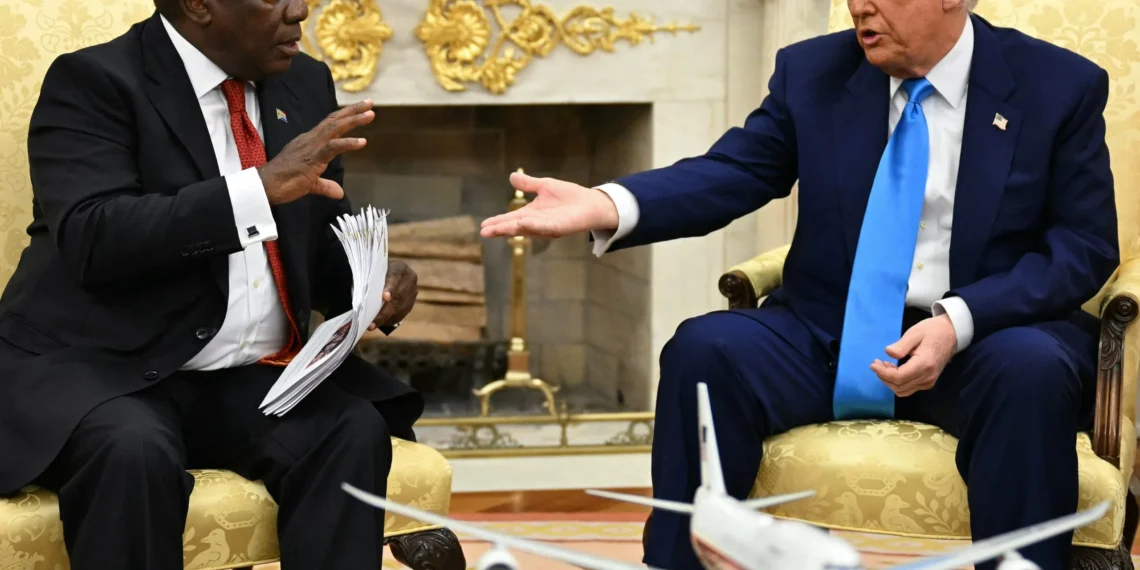South Africa’s President, Cyril Ramaphosa, has opposed what he calls the “unilateral” higher trade tariffs imposed on his country by the United States.
US President Donald Trump announced on Monday that he would subject imports from South Africa to a new 30 percent tariff from August 1.
It is the only African state affected by his latest announcement, reflecting his strained relationship with Ramaphosa’s government.
In a letter to Ramaphosa, Trump said South Africa’s trade relationship with the US “has been, unfortunately, far from reciprocal”. In his response, Ramaphosa maintained the 30 percent tariff “is not an accurate representation of available trade data”.
Trump’s decision is a huge blow to South Africa. The US is its second-biggest trading partner, and South Africa’s automobile and farming sectors had duty-free access to the US market.
Trump sent letters to South Africa and 13 other countries, informing them of his latest tariff plans.
The US president said the rates could be modified “upward or downward, depending on our relationship with your country”.
“We have had years to discuss our trading relationship with South Africa, and have concluded that we must move away from these long-term, and very persistent, trade deficits engendered by South Africa’s tariff, and non-tariff, policies and trade barriers,” Trump said in his letter.
“Starting on August 1, 2025, we will charge South Africa a tariff of only 30 percent on any and all South African products sent to the United States, separate from all sectoral tariffs,” he added.
Trump said that if South Africa were to increase its tariffs in response to his announcement, the amount it chooses to raise them by would be added on top of the existing 30 percent.
Read also:
- Trump assures Ukraine of more weapons after US pause on shipments
- Trump threatens an extra 10% tariff on nations siding with BRICS
- Elon Musk launches ‘America Party’ to challenge Trump, break U.S. one-party dominance
“If you wish to open your heretofore closed trading markets to the United States, and eliminate your tariff and non-tariff policies and trade barriers, we will, perhaps, consider an adjustment to this letter.”
In response, Ramaphosa contested the new tariffs, saying the issue was still under consideration by negotiating teams from South Africa and the US.
“This 30 percent tariff is based on a particular interpretation of the balance of trade between South Africa and the United States,” Ramaphosa said in a statement.
He added that more than half of the goods South Africa imported from the US were not taxed, and the average tariff on the rest was 7.6 percent
He said South Africa would continue with its diplomatic efforts to ensure a “more balanced and mutually beneficial trade relationship” with the US.






